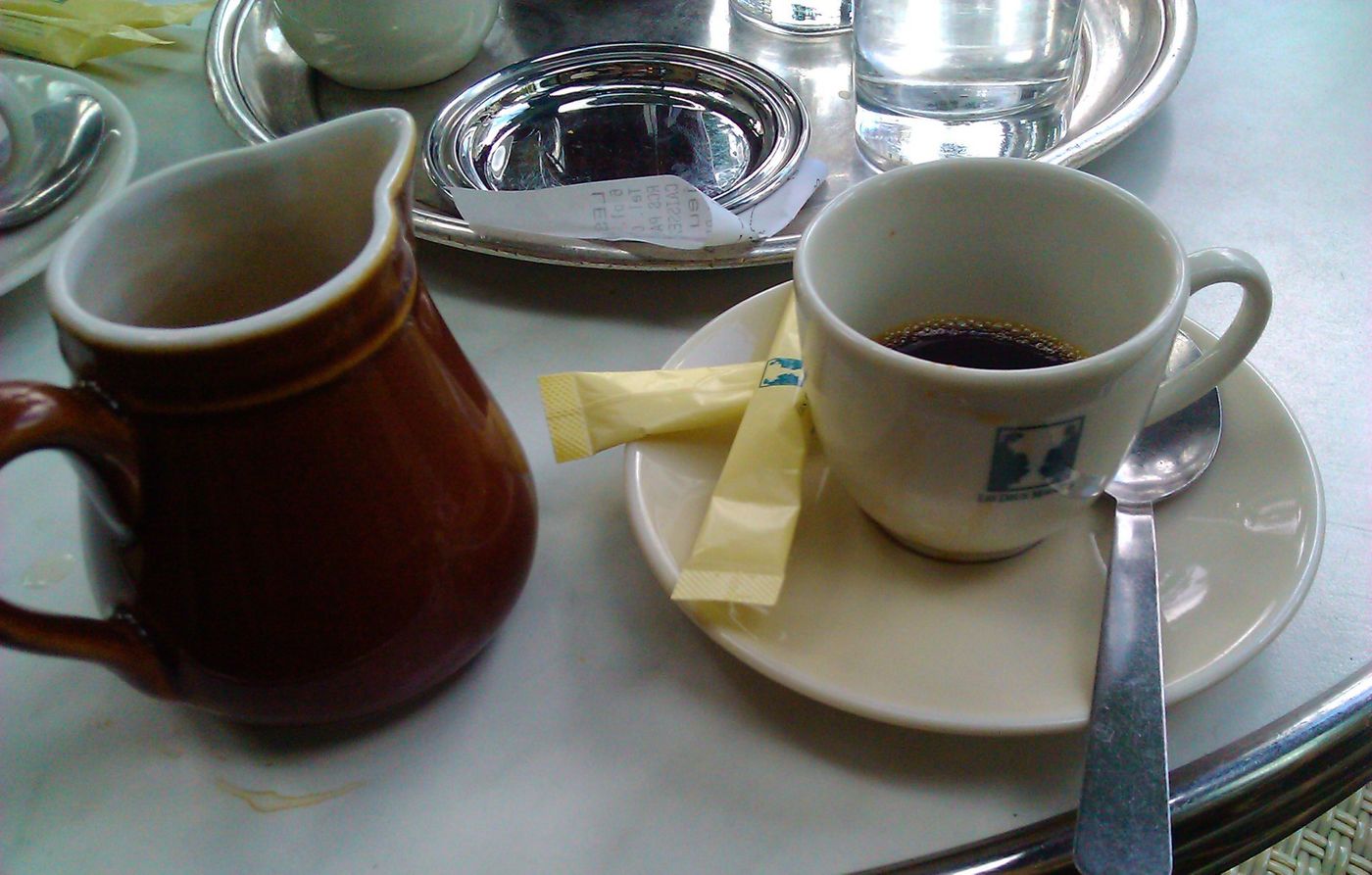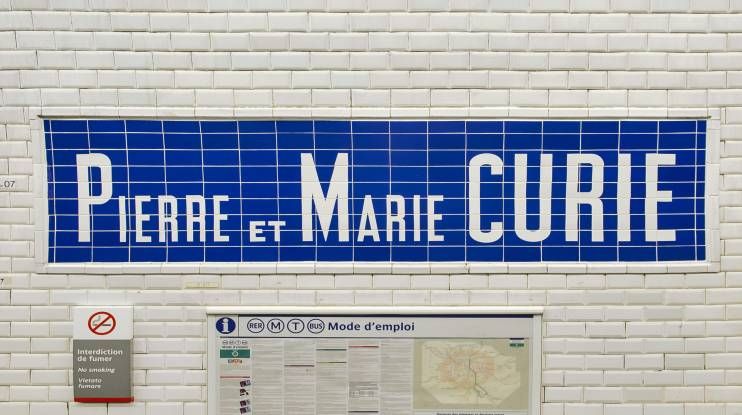
反意識形態/爾思出版共同創辦人 寫作的地方:https://travelwithbook.com/ 來信指教:chin@travelwithbook.com
Essay | "Left Bank Cafe" is the real misunderstanding in Paris
In the late 1990s, a canned coffee advertisement of "Left Bank Coffee" was broadcast on TV. While still in elementary school, I began to have a longing and yearning for the Left Bank in Paris . Thinking, when will I be able to sit elegantly in the corner of the Left Bank Cafe, reading a book and drinking coffee?
My earliest impression of Paris is that I read the biography of " Madame Curie" when I was seven or eight years old. At the age of twenty-four, Marie went to Paris to study, do research, marry a Frenchman and win the Nobel Prize in Physics and Chemistry. Her life circle is on the Left Bank in Paris.
I saw the point of the story then: if she hadn't been to study in Paris, life wouldn't have been so exciting.
As a kid, I thought of romance as being able to give up all material comforts for the sake of my dreams, cramming like Mary in an unheated attic in Paris (not the kitchen and bathroom room in Emily in Paris). ) studied hard and finally won the Nobel Prize. Maybe when I was a child, I always said that I wanted to learn from the idol "Madame Curie" to study in Paris and to wander in Paris. My mother dreamed that I would sleep in the Paris subway when I became an adult.
When I was in middle school, I had developed the habit of drinking coffee every morning. I got up in the morning and grinded coffee beans by myself before making coffee by hand. It was not very professional, but I had some taste and appreciation for coffee more or less.
Later, I learned French and went to Paris.
Part of my dream is to go to the Left Bank for classes. On the first week, I went to the "Café de Flore" for a pilgrimage.

Full of expectations, I walked into the cafe with a pious mood and ordered a cup of coffee with the waiter in French, which I practiced for a long time but still jerky. I chose to sit in the seat facing the street, and took out the notebook in my backpack to write down the time. Feelings: "The coffee is weak like the pot of coffee in an American family restaurant (like a pot of hot water brewed from an espresso machine), and the middle-aged male waiter brought it to me elegantly, as if very cautious. Great ceremony. Parisians are comfortable chatting and reading on the sidewalk, rarely touching the cup of coffee or drink on the table - so I probably don't have any interest in going to the old age."
I've also never been to Shuangsou Cafe.
Immediately, I couldn't help but send a message to the professor who studied in France: "What happened to the coffee in Paris? I'm so disappointed."
The professor said that the purpose of the coffee shop in Paris is to chat with friends, and no one cares whether the cup of coffee is good or not. Of course, some new shops emphasize specialty coffee, but those famous coffees were brewed by coffee machines in the past. Tell me not to judge a Parisian café by the way I drink coffee in Taipei.
Maybe I have always regarded "coffee" as a very important drink, and I was brainwashed by the "left bank cafe" that did not exist since I was a child.

The Left Bank is the south of the Seine River in Paris. At that time, I had to take Line 7 to go to my ex-boyfriend's house and pass a subway station called "Pierre et Marie Curie". The French have been tying Mr. Curie with her, which makes people angry! In fact, this station was only called Pierre Curie before January 2007, and then her name was added to commemorate this great scientist. Except that Mary was not French at birth, what is better than her husband?
When I arrived in Paris, I found that many things were different from what I imagined. I have always avoided calling her Madame Curie, just wanting to emphasize her independence. But the reality in France is that Marie Curie won two Nobel Prizes and can only be commemorated with her French husband. (Well, she shouldn't care if it becomes a subway name)
However, there is really a Marie-Curie station in Quebec, Canada. Do you think the French can really reflect on it? !
By the way, although I am not very old, going to Europe was not popular and there were not so many people writing travel blogs.
For example, when I applied for a school, I didn’t find an agent and I applied in English. It took me half an hour to go from the “outside province” where I lived to the left bank of Paris for class, and then it took nearly two hours to take two trains and three subways. It will go to the "Centre of Paris" - there was no Chinese reference for these traffic information at that time, and even Googlemaps at that time did not have public transport information in Paris. It was me who went to the bus station the day before to study how to get to the train station, asked the station staff how to get to the subway at the train station, and found the nearest way to the school by studying the map.
I think very young readers may not be able to understand those cultural shocks in the era of information gap. In fact, after watching the discussion and the resentment caused by Parisians after the broadcast of "Emily in Paris", you can know that foreigners still love Paris. Some incorrect reverie.
Most people's image of Paris, France, is basically understood from literature and movies. Even if some people go abroad, most of them are traveling in groups. Many cultural details cannot be understood, and not everyone is sensitive to discover details.
It wasn't until I went to Paris that I discovered many misunderstandings. Originally, I wanted to write "Misunderstandings in Paris" because of this type of information gap.
Before I went to Paris, I thought the waiters in France were rude, but a few days later I found out that it was because some tourists did not greet the clerk before entering a store. If they said "bonjour", the clerk would greet them warmly. you! Many non-locals will criticize Parisians based on their accustomed culture. Obviously, non-locals should follow the customs rather than expect locals to cooperate. There is no question of "international etiquette". Even if the French are uncomfortable speaking a word of English, you can't blame them for not being international!
Part of the content "Essay" was originally written by me, who was sitting in a cafe in Paris N years ago.
Like my work?
Don't forget to support or like, so I know you are with me..

那場誤會

關於創作與誤會
Comment…